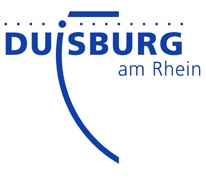Data protection
Data protection
General information on the implementation of data protection laws under the terms of the General Data Protection Regulation
The provisions of the General Data Protection Regulation (GDPR) have been in force in all EU member states since 25 May 2018. The following information provides an overview of how your personal data is processed and your rights resulting from the data protection legislation.
Gathering and processing personal data
You are generally able to visit the website for the city of Duisburg without having to provide personal data. Personal data will only be gathered and processed if this is required for a specific service offered on the website. The data will then be deleted. Barring legally permissible exceptions, your data will only be used for the purpose for which it has been gathered.
Data is processed on the basis of Art. 6(1) GDPR. The processing of data in electronic and paper form will be carried out on the basis of the specifications set out by the data protection officer for the city of Duisburg. The necessary technical and organisational security measures are employed here to protect the personal data from unintentional or unlawful destruction or modification and from unauthorised disclosure or access.
Cookies
So-called cookies are used in some areas of the city of Duisburg’s website and also on some linked secondary pages (e.g. in the form of connected, Web-based applications) to provide you with a more individual service. Cookies are labels that a Web server can send to your computer to identify it for the duration of the visit. You can set your browser to inform you about the storage of cookies, making the use of cookies transparent for you.
Further information on the gathering and processing of personal data can be found within the relevant areas/applications.
Matomo (formerly Piwik)
Our website uses the Web analytics service Matomo for statistically evaluating visits. Matomo uses so-called cookies. These are text files that are stored on your computer and allow us to analyse how the website is used. The usage information generated by the cookie is sent to our server (at DU-IT GmbH) where it is stored. Your IP address will be anonymised in the process prior to the information being stored.
You have the option to prevent cookies from being installed on your computer by setting your Internet browser accordingly. However, this may result in you being unable to use the full scope of functions on this website (see ‘Cookies’ above).
If you do not consent to the storage and evaluation of data relating to your visit to the website duisburg.de, you can object to us storing and using it at any time. Simply click on the following link.
In this case, a so-called opt-out cookie will be stored in your browser and Matomo will no longer be able to gather session data on your visits to this website.
Note: If you delete your cookies, the opt-out cookie will also be deleted, which may result in you having to reactivate it.
Using and sharing personal data and related limitations
In accordance with prevailing regulations, all personal data will only be gathered, processed and used for the purposes of processing contracts and protecting our own legitimate interests.
Security
The city of Duisburg will employ technical and organisational measures to protect your data from unauthorised access, loss and destruction. Our security measures are constantly updated to keep pace with technological developments. If you have any questions about how your personal data is processed, you can directly contact our data protection officer.
Responsible party
City of Duisburg
The Mayor
Burgplatz 19
47051 Duisburg
Contact details of the data protection officer
Datenschutzstadt-duisburgde
Please note that third parties may be able to read or tamper with data that has been sent unencrypted over the Internet. Accordingly, data exchanged using online methods and forms at www.duisburg.de is firstly encrypted (HTTPS/SSL), protecting it from unauthorised access or manipulation. Confidential data should never be sent via unencrypted email.
What are your rights?
You have various rights under the terms of the General Data Protection Regulation. Specific rights particularly arise from Articles 15 to 18 and 21 of the General Data Protection Regulation.
The right to information
You can request information about the personal data we have processed. You should precisely state your request in your application for information to make it easier for us to compile the required data. Accordingly, details on the specific administrative procedure and the procedural stage should be provided in the application to the greatest extent possible. In the event of manifestly groundless or excessive applications, the provision of information can be refused.
The right to rectification
If the information in question is not (or no longer) applicable, you can request to have it rectified. You also have the right to have incomplete personal data completed.
The right to erasure
You can ask for your personal data to be erased. Among other things, your right to erasure depends on whether the data in question is still needed in order to comply with our legal duties.
The right to restriction of processing
You have the right to request the restriction of any processing of data concerning you. The restriction is not an obstacle to the processing of the data, insofar as there is significant public interest in the processing of this data.
The right to object
You have the right to object to the processing of the data in question at any time, for reasons arising from your particular situation. However, we are unable to meet this request if there is overwhelming public interest in the processing of this data or a legal regulation compels us to process it.
The right to complain
If you are of the opinion that we have failed to comply with your request in any way, you can lodge a complaint with the relevant data protection supervisory authority. You can find the contact details of the data protection authorities at national and regional state level at www.datenschutz.de/projektpartner/.
